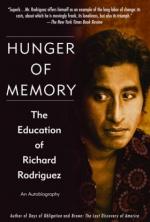
|
| Name: _________________________ | Period: ___________________ |
This test consists of 5 multiple choice questions, 5 short answer questions, and 10 short essay questions.
Multiple Choice Questions
1. What does Rodriguez's teacher tell him about reading and complicated ideas?
(a) He needs to read 5,000 books to have a complicated idea.
(b) He needs to read 2,000 books to have a complicated idea.
(c) People who do not read cannot have complicated ideas.
(d) Reading will teach him complicated ideas.
2. Where does Rodriguez start school?
(a) In Sacramento, California.
(b) In St. Paul, Minnesota.
(c) In New York City.
(d) In Miami, Florida.
3. How does Rodriguez describe himself now?
(a) A Latino activist.
(b) A middle-class American.
(c) A famous author.
(d) An education expert.
4. Does Rodriguez think his religious education had the effect it was supposed to?
(a) Yes, because it kept him involved with the religion.
(b) No, because the schools were supposed to give him a broader view.
(c) No, because he eventually stops practicing the religion.
(d) Yes, because he gets a good education.
5. As Rodriguez moves into graduate school, what does he realize about his education?
(a) He is using it to hide from his life.
(b) He is the most educated person in his family.
(c) He is afraid of failing in school.
(d) His parents will never be proud of his accomplishments.
Short Answer Questions
1. What does Rodriguez say would be the disadvantage of bilingual education?
2. What does Rodriguez start to believe about intimate conversations?
3. How does Rodriguez's grandmother affect his ideas on language?
4. How does the family's use of the word "gringo" change as the children learn more English?
5. How does Rodriguez feel about his parents' English skills?
Short Essay Questions
1. What do other people think of the "scholarship boy"?
2. Why is Rodriguez writing this book? Identify two reasons.
3. What does Rodriguez suggest education does to the scholarship boy? Why does he say that?
4. What is Rodriguez's initial attitude about reading? What happens to him because of that attitude? What do his parents think about reading?
5. What does Rodriguez describe as the differences between Mexican Catholicism and English Catholicism? Identify two characteristics of each.
6. Rodriguez's family continues to speak to him in Spanish. What does that suggest about what they think about the value of Spanish?
7. What conflicting messages does Rodriguez's father give him about getting an education?
8. Why does Rodriguez talk about how the rich people pronounce his name?
9. What does Rodriguez say about how bilingual education affects the intersection of public and private languages?
10. How does Rodriguez feel about bilingual education?
|
This section contains 992 words (approx. 4 pages at 300 words per page) |

|




